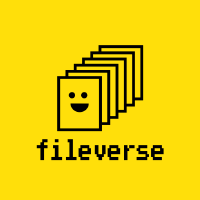🚀 APIv2 is now available! Make the most of the information-rich responses Learn more →
Source Code Verification
for Ethereum Smart Contracts
for Ethereum Smart Contracts
Open-source, open-data, open-standards
// SPDX-License-Identifier: MIT
pragma solidity 0.8.20;
import "@openzeppelin/contracts/token/ERC20/ERC20.sol";
import "@openzeppelin/contracts/access/Ownable.sol";
contract ERC20Token is ERC20, Ownable {
address public bridgeAdmin;
constructor(
string memory name,
string memory symbol,
uint256 initialSupply,
address _bridgeAdmin
) ERC20(name, symbol) Ownable(msg.sender) {
bridgeAdmin = _bridgeAdmin;
// Mint the initial supply of tokens to the deployer of the contract
_mint(msg.sender, initialSupply);
}
function mint(address to, uint256 amount) public returns (bool) {
// require(msg.sender == bridgeAdmin, 'only bridge admin');
_mint(to, amount);
return true;
}
function burn(address from, uint256 amount) public returns (bool) {
// require(msg.sender == bridgeAdmin, 'only bridge admin');
_burn(from, amount);
return true;
}
function updateBridgeAdmin(address newAdmin) external onlyOwner {
require(newAdmin != address(0), "Address cant be zero address");
bridgeAdmin = newAdmin;
}
}
Open-Source
Sourcify is and always will be 100% open source. Github →
Open-Data
Verified contract datasets should be open and easily accessible.
Sourcify's whole database is available for free and open access. Download all verified contracts
0 Chains










0
contracts verified
- Exact Matches
- Matches
Tooling
# Deploy and verify
$ forge create --rpc-url <rpc-url> --private-key <private-key> src/MyContract.sol:MyContract --verify --verifier sourcify
# Verify an already deployed contract
$ forge verify-contract --verifier sourcify --chain <chain-id> 0xB4239c86440d6C39d518D6457038cB404451529b MyContract
# Check if a contract is verified
$ forge verify-check 0x1F98431c8aD98523631AE4a59f267346ea31F984 --verifier sourcify
Who's using
Self-hosting
Sourcify is open-source and for self-hosting. Here are some public instances we are aware of:
Get in touch
F.A.Q.
Smart contracts on Ethereum and other EVM blockchains are written in human-readable programming languages like Solidity, compiled into bytecode, and stored in bytes on the chain. Humans can't read bytes so this needs to be brought back to human-readable form.
However, if you see a Solidity/Vyper code on Github etc., and someone claims this to be the code of the contract at 0xabc..def, you wouldn't know. Verification makes sure that, that Solidity code is actually the one deployed on-chain.
In simplified terms, we take the Solidity/Vyper code provided by the developer or anyone, compile it, and compare the compiled bytecode with the onchain bytecode at that address 0xabc..def. If they match, the contract is verified.
Source code verification is crucial for transparency and security in blockchains. You should not interact with contracts that are not source-code verified.
Verification does not mean it's safe to interact with a contract. Verifiers do not check the contents of the contracts. These should be cheked by auditors and the community to be deemed safe.
- Sourcify is fully open-source, self-hostable, and non-profit.
- We share our whole contract dataset publicly in modern data formats for community use.
- We also store all verified contracts on IPFS, which makes them available directly through the IPFS hash in the bytecode. See the playground for more.
- Sourcify supports "exact match"es, which means the verified source-code is cryptographically guaranteed to be the same as the original one, even whitespaces, comments etc. See docs for more.















